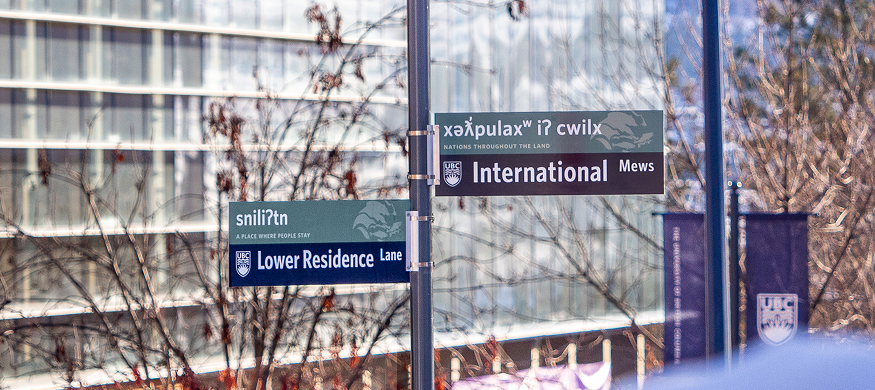
Reaffirming Support for Ongoing Priorities and Plans

We are reaffirming our commitment to the institutional plans created to advance key strategies in Shaping UBC’s Next Century 2018–2028 (PDF). These important plans are transforming UBC, but lots of work remains to be done to fully realize our shared vision.
The ongoing implementation of these plans, together with emerging strategic directions identified from the refresh process, are fundamental in achieving both our 2050 vision and near-term priorities, as they enable and support academic and research excellence across UBC
Indigenous Strategic Plan (ISP)
UBC began implementing its Indigenous Strategic Plan in 2020. The plan sets out a series of eight goals and 43 actions the university will collectively take to advance our vision of becoming a leading university globally in the implementation of Indigenous peoples’ human rights.


UBC Okanagan’s Declaration of Truth and Reconciliation Commitments
UBC Okanagan’s 2019 Declaration of Truth and Reconciliation Commitments, in conjunction with the 2020 UBC-wide Indigenous Strategic Plan, continue to provide a roadmap to forge the path of Truth and Reconciliation at UBC Okanagan.
Strategic Equity and Anti-Racism (STEAR) Framework
Introduced in 2023, the StEAR Framework is a community engaged, data-informed, action-oriented and accountability-driven planning tool developed to guide the implementation of UBC’s equity and anti-racism priorities and the cyclical evaluation of progress.


Climate Action Plan 2030
The UBC Climate Action Plan 2030 puts the university on an accelerated path to net-zero emissions for buildings and energy supply, and to significantly reduce greenhouse gas emissions for extended impact areas over the next 15 years.
Student Strategic Plan
The Student Strategic Plan represents our shared purpose and priorities in fostering an outstanding student experience grounded in learning, development and fun—one that prepares students to lead in work and life beyond university.


Focus on People Framework
Focus on People outlines how the university is working to be the first choice for faculty and staff to achieve their greatest potential. Four catalyst areas are identified in the framework, which recognizes that a large part of what makes our institution unique is the community of engaged faculty and staff who are collectively committed to shaping a better world.
Wellbeing Strategic Framework
The Wellbeing Strategic Framework is our shared vision for UBC as a university that promotes health and wellbeing and where all people, places and communities can flourish. The framework outlines our collective approach to embedding wellbeing into organizational plans, policies, practices, work plans and decision-making.

